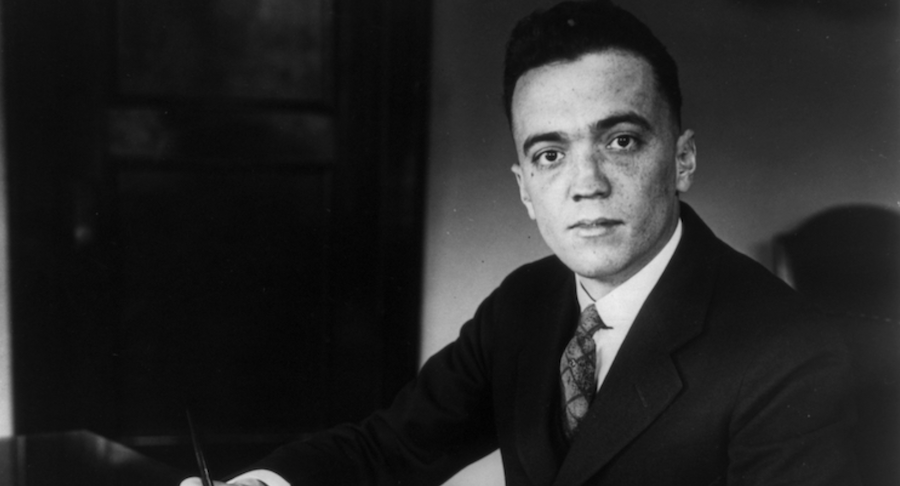Hoover's dark secret is revealed

Hoover's dark secret is revealed
FBI chief who hounded Martin Luther King had black ancestors, author says
Duncan Campbell in Los Angeles
Fri 23 Jun 2000 20.47 EDT
J Edgar Hoover, the head of the FBI who worked relentlessly to undermine Martin Luther King and others in the civil rights movement in the 1960s, had black ancestors whose existence he desperately tried to keep secret, according to a new book.
Millie McGhee, the author of Secrets Uncovered, J Edgar Hoover - Passing For White? is an African-American who says she was told as a little girl in McComb, Mississippi, of her family's links with Hoover.
She writes in the book that her grandfather told of her of this "very powerful" man in Washington who was related to the family but did not want the links to be known and passed himself off as white.
Ms McGhee, a former teacher in Los Angeles, explains that she contacted a genealogist in Salt Lake City, Utah, for help in tracing her family's history back 200 years.
She says her research shows that Hoover's grandfather and great-grandfather lived in a segregated black area of Washington and were classified in a census as "coloured".
Hoover, who was born in 1895 and died while still head of the FBI in 1972, was apparently anxious that no one should know of his origins.
According to Ms McGhee, relatives were warned of dire consequences if they spoke publicly of his background. As a little girl she believed that they would be killed if they mentioned the secret.
"Is this man so ashamed of his race that he would spend his whole life passing for white?" she asks. "How has our race offended him?"
She believes that his obsession with King and other black civil rights leaders stemmed in part from his repressed anger about his secret life.
She told the Guardian yesterday that members of the Hoover family who had contacted her had not been angry about the disclosures, but that her own family were unhappy with her decision to go public. "They're very upset."
"I never wanted to be related to him," she said. "I never even liked him."
Hoover came from a family that had always worked in government service in Washington. He entered the justice department after graduating in law, became acting director of the FBI in 1929 and was confirmed as director shortly afterwards.
He was associated throughout his career with a fierce paranoia about the left and the civil rights movement, and an obsession with pursuing what were seen to be enemies of the United States. A powerful figure during his life, he became the subject of much mockery after his death, when it was claimed that he had enjoyed cross-dressing.
Hoover's wire-tapping and hidden surveillance practices took the FBI's involvement in the private lives of US citizens to new levels.
After his death it was accepted that no FBI director should ever have such power again.
Ms McGhee says that the book is not an exposé of Hoover's dishonesty, but more of a cross between "Roots and Danielle Steel", in that it catalogues her search to discover the family's secrets.



 I thought this was well known?
I thought this was well known?